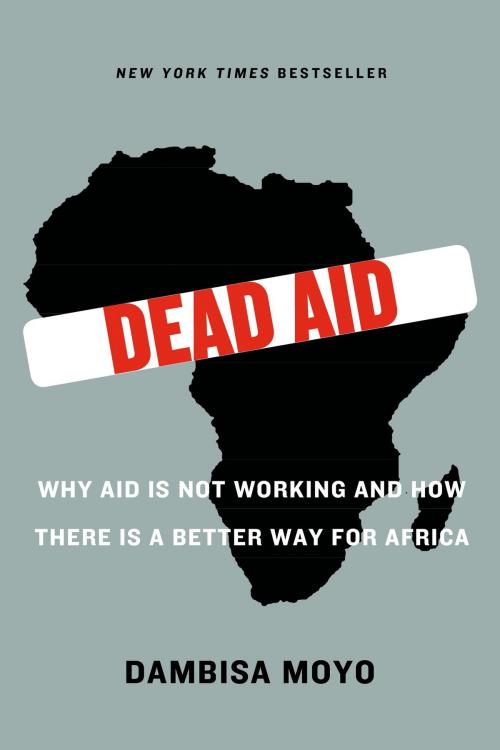Dead Aid
Why Aid Is Not Working and How There Is a Better Way for Africa
Nonfiction, Social & Cultural Studies, Political Science, International, International Relations| Author: | Dambisa Moyo | ISBN: | 9781429954259 |
| Publisher: | Farrar, Straus and Giroux | Publication: | March 17, 2009 |
| Imprint: | Farrar, Straus and Giroux | Language: | English |
| Author: | Dambisa Moyo |
| ISBN: | 9781429954259 |
| Publisher: | Farrar, Straus and Giroux |
| Publication: | March 17, 2009 |
| Imprint: | Farrar, Straus and Giroux |
| Language: | English |
In the past fifty years, more than $1 trillion in development-related aid has been transferred from rich countries to Africa. Has this assistance improved the lives of Africans? No. In fact, across the continent, the recipients of this aid are not better off as a result of it, but worse—much worse.
In Dead Aid, Dambisa Moyo describes the state of postwar development policy in Africa today and unflinchingly confronts one of the greatest myths of our time: that billions of dollars in aid sent from wealthy countries to developing African nations has helped to reduce poverty and increase growth. In fact, poverty levels continue to escalate and growth rates have steadily declined—and millions continue to suffer. Provocatively drawing a sharp contrast between African countries that have rejected the aid route and prospered and others that have become aid-dependent and seen poverty increase, Moyo illuminates the way in which overreliance on aid has trapped developing nations in a vicious circle of aid dependency, corruption, market distortion, and further poverty, leaving them with nothing but the "need" for more aid. Debunking the current model of international aid promoted by both Hollywood celebrities and policy makers, Moyo offers a bold new road map for financing development of the world's poorest countries that guarantees economic growth and a significant decline in poverty—without reliance on foreign aid or aid-related assistance.
Dead Aid is an unsettling yet optimistic work, a powerful challenge to the assumptions and arguments that support a profoundly misguided development policy in Africa. And it is a clarion call to a new, more hopeful vision of how to address the desperate poverty that plagues millions.
In the past fifty years, more than $1 trillion in development-related aid has been transferred from rich countries to Africa. Has this assistance improved the lives of Africans? No. In fact, across the continent, the recipients of this aid are not better off as a result of it, but worse—much worse.
In Dead Aid, Dambisa Moyo describes the state of postwar development policy in Africa today and unflinchingly confronts one of the greatest myths of our time: that billions of dollars in aid sent from wealthy countries to developing African nations has helped to reduce poverty and increase growth. In fact, poverty levels continue to escalate and growth rates have steadily declined—and millions continue to suffer. Provocatively drawing a sharp contrast between African countries that have rejected the aid route and prospered and others that have become aid-dependent and seen poverty increase, Moyo illuminates the way in which overreliance on aid has trapped developing nations in a vicious circle of aid dependency, corruption, market distortion, and further poverty, leaving them with nothing but the "need" for more aid. Debunking the current model of international aid promoted by both Hollywood celebrities and policy makers, Moyo offers a bold new road map for financing development of the world's poorest countries that guarantees economic growth and a significant decline in poverty—without reliance on foreign aid or aid-related assistance.
Dead Aid is an unsettling yet optimistic work, a powerful challenge to the assumptions and arguments that support a profoundly misguided development policy in Africa. And it is a clarion call to a new, more hopeful vision of how to address the desperate poverty that plagues millions.















